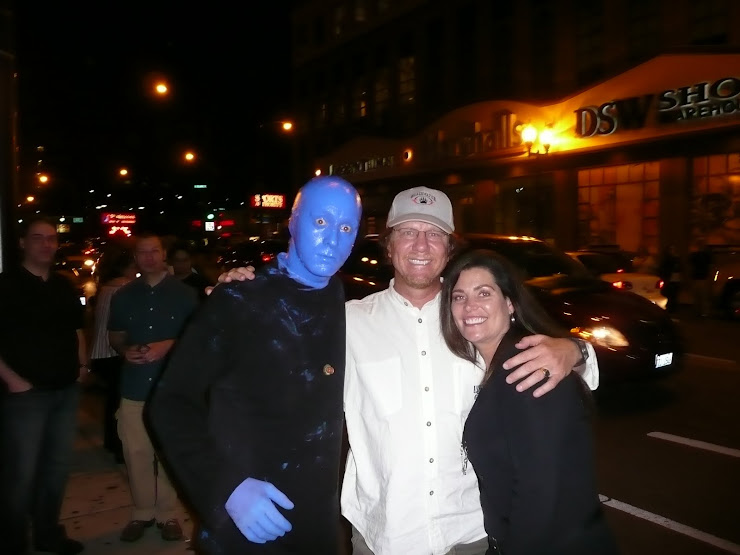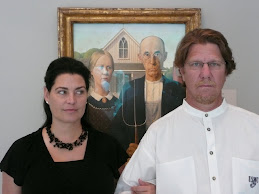Although my wife and I are currently doing a fair bit of work for “the church,” I for one am still pretty new to the faith—and I’ve encountered a lot of issues that I find to be confusing and a bit intimidating.
One of those issues, quite frankly, is the frequent use of the word “love.” God loves me; Jesus loves me; I’m supposed to love them; I’m supposed to love my enemies—the list goes on. I found it confusing because I understand only two kinds of love: the kind of “love” I have for my family and friends, and the kind of “in love” I have for my wife. To be honest with you, all the “loving” going on in the practice of Christianity kind of weirded me out.
Anyway, let me get to my point about my new understanding of the “L” word: When I was a young man, I went into the Marines as an officer. It was the hardest thing I could think of to do at that age, and it was my “call of the wild.” It tested my mental limits, my physical limits, and I hoped it would one day test the limits of my courage. I could think of nothing more thrilling than to lead a platoon of Marines into the jaws of combat, and earn honor for my Marines and myself. It was the dream of an idealistic, young man I knew a long time ago.
I was trained, of course, as a leader…I was taught that I would lead the platoon, but I would not walk point myself. I would give the orders to fire and maneuver, but I would not personally rush the machine gun nest myself.
This is not to say a Marine Lieutenant is not always out front. They are, and casualty figures demonstrate this fact clearly, but when someone has to be specifically picked for an extremely dangerous or deadly job, it’s not supposed to be the Lieutenant. The Lieutenant is the man with the plan, and it is his specific duty to stay alive and lead his men as long as possible. This is a basic military fact that’s been around as long as gunpowder, and I understood it well.
Yes, in the long run I may die in combat, but I would be asked to make hard decisions before I fell. Namely, I would be asked to order some of my Marines on missions they would not survive. No problem, I thought—I was a well-trained professional, and everyone who wears the uniform knows the rules of the game.
But, a strange thing happened. I was assigned to my platoon, and stayed with them for almost two years. I got to know “my boys,” and learned things about them their parents didn’t even know. Some were exceptional, some were good, and some were pretty-much knuckleheads, but they were my men. I trained with them, ate with them, suffered with them, disciplined them—and was responsible for everything they did, or failed to do.
And over time, as I grew to better understand the fire and honor that burned inside each of them, I grew to love them. I loved them, perhaps, more than anything I’ve ever loved, outside my wife and family. My desire to serve my country and accomplish my mission decreased as my desire to serve them increased. There was nothing I wouldn’t do for them, and I certainly wouldn’t have sent one of them to die without me out front, taking the first bullet. Did this decrease my effectiveness as a Platoon Commander? Yes, absolutely—but I did not care. These were my Marines, and they were more valuable to me than Corps and Country.
Eventually, I was promoted “above” the position of Platoon Commander, and a couple years later, I was once again a civilian. As the years went by, I would look back with great fondness on my days as a Marine, but I tried not to dwell on it—life is in the now, and in the future.
Fast-forward to 2002—I was reading a book called Gates of Fire, by Steven Pressfield, which is an historical novel of the Spartans of ancient Greece, who were by any standards the toughest, most disciplined warriors to have ever lived. And in his novel, Pressfield brought together a concept that changed everything for me.
You see, as a former Marine, I still believed that the opposite of fear was courage. I thought it was courage I would bring to the field of battle, which would enable me to die for my men. My courage would ensure that I would make whatever sacrifice was necessary. But Pressfield clarified my thinking. In telling the story of the Spartans at Thermopylae, he helped me understand the truth: The opposite of fear is not courage—the opposite of fear is love. Only love – the ultimate tie that binds – makes one man willing to die for another.
This, I now believe, is the love Christ has for us. Much as I saw through the human faults and human shortcomings of my Marines, so Christ sees through our faults. And much as I saw the honor and loyalty in my Marines that made them worthy of love, so Christ sees all of the things that make each of us worth loving. In fact, Christ sees all the way through us, as if he’s looking through a spring-cleaned window, and it is that ability that enables him to see the nuggets of worthiness inside the lousiest of people.
For me, the many uses of the word love in Christianity are easier to understand now that I understand the word “love” has different meanings. Now don’t get me wrong, there are some Christians who are “in love” with Jesus. I’ve even heard of it described as a feeling of “sober intoxication.”
But I think that comes with time and prayer, and even then doesn’t come to everyone. God alone decides who gets what. But what I’m saying is this: We Christians believe God loves us infinitely more than we humans can love each other—so much so that, in order to serve and save us He watched as his own Son was nailed to a cross and left to die an agonizing death.
Now, if there’s a one in ten million chance that Christianity is the Truth, and that God did do that for you and me, doesn’t that make it worth your while to investigate the topic further?
Friday, February 19, 2010
Subscribe to:
Post Comments (Atom)



No comments:
Post a Comment